
Blog: Reflections on COP15
GES members attended the recent UN biodiversity conference to better understand the impacts of biotechnology on biodiversity and conservation....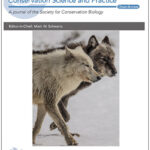
A Focus on “Intended Consequences” to Drive Conservation Action | Conservation Science and Practice
Press Release, April 15, 2021 | A newly published special issue of Conservation Science and Practice makes the case for rebalancing the risk–benefit equation in conservation....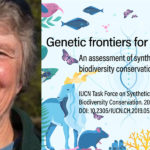
Elizabeth Bennett – Synthetic biology and biodiversity conservation | GES Colloquium
Elizabeth Bennett, of Wildlife Conservation Society, on the possible applications of synthetic biology to biodiversity conservation, and their pros and cons...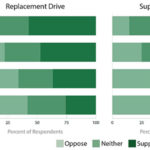
Does the US public support using gene drives to control agricultural pests?
Mike Jones, Sep. 11, 2019 | The development of gene drives is progressing more rapidly than our understanding of public values towards these technologies. Findings from this research can inform responsible innovation in gene drive development and risk assessment....Continue reading "Does the US public support using gene drives to control agricultural pests?"
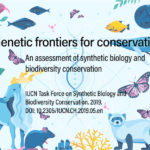
IUCN Report: Genetic frontiers for conservation – An assessment of synthetic biology and biodiversity conservation
Todd Kuiken, May 9, 2019 | Synthetic biology – altering or redesigning genes to meet human objectives – is a fast-developing field with significant potential impacts on nature conservation, according to the Genetic frontiers for conservation assessment report. So far mostly applied in agriculture and medicine, synthetic biology could have substantial knock-on effects on conservation – including modified genes spreading to non-target species and affecting broader ecosystems, but also benefits such as saving threatened species, reduced fertiliser use or diminished demand for products derived from threatened species....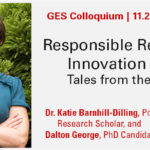
Katie Barnhill-Dilling & Dalton George – Responsible Research & Innovation in Action: Tales from the Front Lines
11/20 Colloquium - Dr. Katie Barnhill-Dilling and Dalton George | Responsible research and innovation (RRI) is an increasingly applied normative framework for the governance of emerging technologies. However, meaningful implementation of RRI principles can be challenging, particularly with respect to upstream stakeholder and community engagement. The Safe Genes NCSU project, "Restoring Ecosystems and Biodiversity through Development of Safe and Effective Gene Drive Technologies," has been designed with RRI in mind. ...
Scientific American: Could Genetic Engineering Save the Galápagos?
Campbell first became intrigued by the possibilities of gene drive in 2011, when he sat in on a conference call between biologists at NC State University and officials of the U.S. Fish and Wildlife Service to discuss a possible genetic approach to control a runaway mouse problem on Southeast Farallon Island, about 20 miles west of the California coast, near San Francisco. John Godwin, a North Carolina State neurobiologist who studies animal behavior, had learned of the Farallon issue while skimming the Internet in 2011. He happened to be at a university with an established infrastructure dedicated to experimenting with—and considering the ethical implications of—genetic manipulation....Continue reading "Scientific American: Could Genetic Engineering Save the Galápagos?"
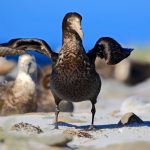
NC State Receives DARPA Funding to Develop, Test Gene Drive System
For Immediate Release August 3, 2017 John Godwin | 919.513.2936 North Carolina State University researchers have received funding from the Defense Advanced Research Projects Agency (DARPA) to develop and test a system that would reduce populations of...Continue reading "NC State Receives DARPA Funding to Develop, Test Gene Drive System"